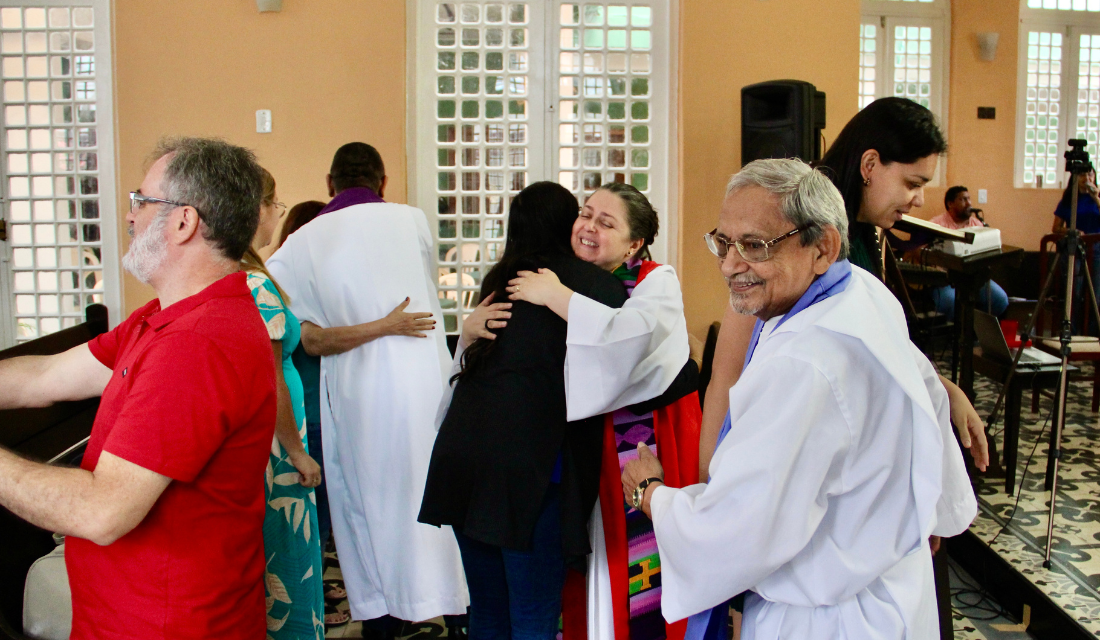Self Care Suggestions for Those Whose Work Involves Trauma

Earlier this month, World Mental Health Day focused on “Mental Health at Work.” As a faith-based development agency, our work at Episcopal Relief & Development involves visiting the people and places that have experienced destruction and violence and working with communities to grapple with the unimaginable.
Our work comes head-to-head with abuse, grief and trauma. With our partners, we walk alongside the survivors of violence and people experiencing hunger, disaster, injustice and the effects of climate change. We join the conversation on mental health in the workplace through that lens.
During disasters, the clergy members and community leaders we partner with often experience total destruction of their homes and livelihoods. In the worst cases, some even lose family members. They barely have time to focus on their own spiritual, emotional and physical needs before jumping into serving others in their communities, through offering spiritual guidance, volunteering at food pantries and providing housing support and other responses. For our partners whose work addresses gender-based violence, they work hands-on with families and communities including perpetrators of violence. They see first-hand the effects of violence on entire families and communities, and help people think and act in a different way than their cultural norms dictate, which often takes time to see the fruits of their labor.
And we, the staff of a global development and disaster response agency, in our support to our partners, are not immune to the effects of caring for others who are in significant emotional pain and physical distress. Bearing witness to a community’s trauma and pain can lead to burnout, secondary trauma, and compassion fatigue, which often result in physical and emotional symptoms like irritability, trouble sleeping, exhaustion, detachment and isolation.
Research has shown that it’s not actually the relational and emotional work that exhausts our colleagues and partners the most, though it is significant, but actually a lack of tools and support. For any of our fellow development workers, clergy and community leaders who may need some ideas for self-care, here are some suggestions:
- Regularly debrief with a trusted person (e.g. a counselor or spiritual leader)
- Take breaks and have set working hours to prevent burnout
- Take courses and attend trainings on trauma-informed care to help you better support others in their healing while protecting your own mental health
- Join a support group for people who do similar work
- Acknowledge the nonlinear nature of healing, equipping yourself to navigate potential setbacks and manage triggers with resilience and self-compassion
Here are some resources that you might find helpful:
- Mental Health First Aid and Suicide Prevention, The Episcopal Church
- Addressing Clergy Mental Health, Columbia Theological Seminary
- Mental Health at Work, World Health Organization
- Burnout, Vicarious Trauma and Compassion Fatigue, AMSSA


